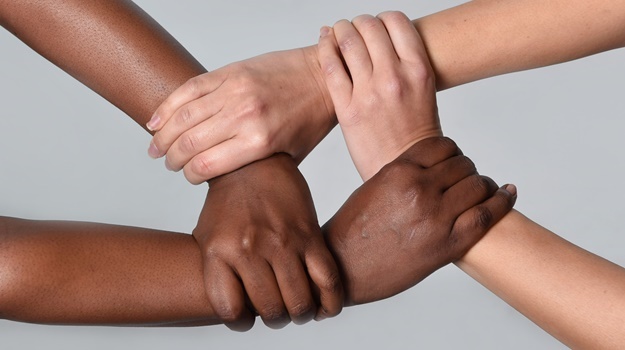
We are in trouble.
South Africa is a country “sliding to its bad old ways of mistrust, hatred and disunity”, a cynical society that only “pays lip service to the non-racial project”.
Racism is “the big monster that lurks in our midst” and to suggest otherwise is to be “essentially denialist about racism”.
These are among editor Mondli Makhanya’s assertions in “Dear IRR, racism is real” last Sunday, expressing disbelief at the Institute of Race Relation’s (IRR’s) recent report, Race Relations in South Africa: Reasons for Hope 2018 – Holding the Line, which found that race relations in the country are generally good.
The report found a different reality from the one Makhanya describes encountering when, if “feeling too upbeat and buoyant, I go to the reader comments at the bottom of online stories to bring my mood down a notch”.
Few would contest Makhanya’s description of online and social media commentary as a “wonderful happiness suppressant”.
But does it tell us the truth about our race relations?
The IRR, whose very existence since 1929 was built on defeating racism, has no illusions about the stubborn persistence of racist thinking or its effects.
The hopeful data in our report is prefaced by a grim summary of “disturbing racial incidents” last year and is leavened by a warning that racial incitement favoured by some politicians and activists carries a cost.
Precisely because of the seemingly persuasive impression of epidemic racial antagonism created by online commentary, we seek to further probe the real dynamics more carefully.
And when we do, we see a different picture.
Despite the presence of racism in society, relations can be healthy – a telling illustration being the 77% of black respondents saying they had “never personally experienced racism”.
To this, Makhanya voices the question that doubtless arose in many others’ minds too: “Where did they find these people?”
Last year’s survey was based on telephone interviews with a national urban and rural sample of 1 000 people – 708 of them black, all interviewed by experienced interviewers in the language of their choice.
The data is credible.
Makhanya cheers one notable result – that 92% of all South Africans and 90% of black respondents agree that “the different races need each other for progress and there should be full opportunity for people of all races”.
This figure reinforces a point we have made before about the magnanimity of black people among whom, despite their history of exclusion and abuse, a majority holds respectful opinions towards other races and are committed to working together to see society progress.
This is to be celebrated and built on.
That there is a sound foundation to do so is plain from the fact that while most people – and 63% of black South Africans – think race relations have improved since 1994, a greater majority – close on 80% of all respondents and 77% of black people – agrees that better education and more jobs will in time “make the present differences between the races steadily disappear”.
Here is evidence of shared understanding of what really matters in South Africa and an essential optimism that economic factors, not culturally ingrained racial ones, are the key to achieving progress.
The crux of Makhanya’s disbelief is that, for instance, a small proportion of people wants the government to dwell on fighting racism or speeding up policies of racial preferencing.
The poll shows that the two things – better education and more jobs – most people believe will “make the present differences between the races steadily disappear” are also the things most want the government to focus on.
If anything, this is the “big monster that lurks in our midst”, maintaining high levels of goodwill across racial lines depends greatly on our ability to defeat poverty, unemployment and inequality. On all three counts, we do not see enough policy reform to secure sustained increases in living standards for poor people.
This deficiency, compounded by politicians and activists who exploit racial nationalism for their own ends, means there is no guarantee that our polling results will in the long term reflect the goodwill shown in recent years.
Which is why it is critical for people of influence to adopt a balanced approach in their analysis, the kind of careful assessment that shows that while racism is real, most people do want to work together to succeed.
Morris is head of media at the SA Institute of Race Relations




 Publications
Publications
 Partners
Partners








